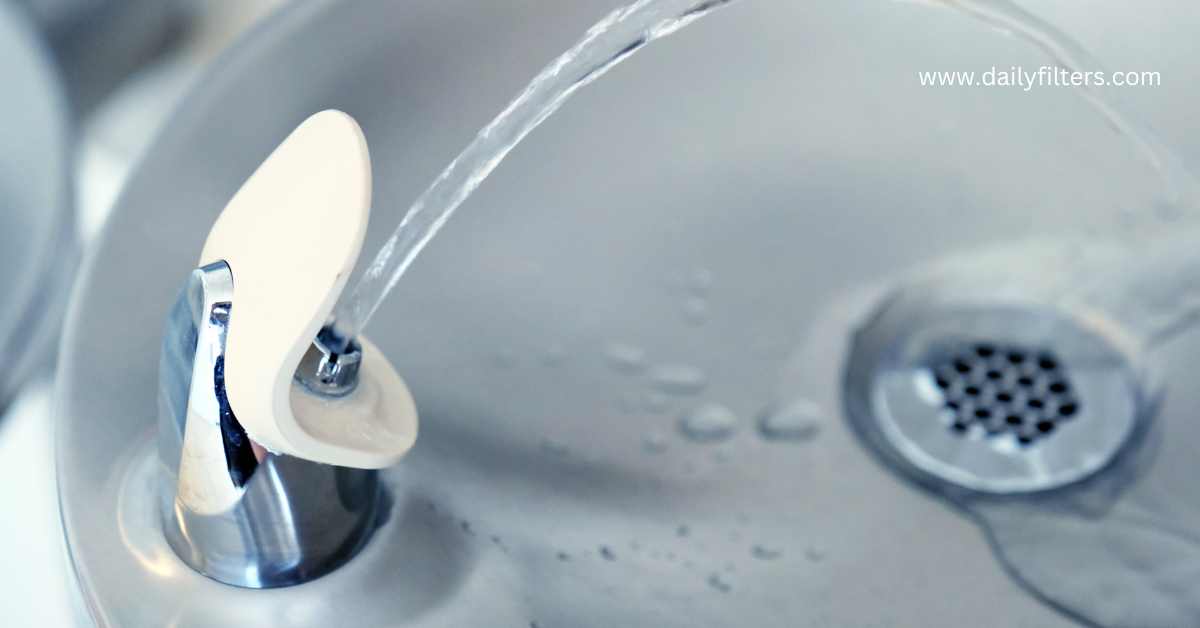Water fountains are an excellent way to stay hydrated, but have you ever questioned whether their water is filtered? You’re not the only one! Several health-conscious individuals have been considering this topic. Join us as we research if water fountains have filters and what you can do to ensure that your drinking water is always safe and clean. Filtering our water is one of the most critical things we can do to protect our health. It not only minimizes the risk of illness, but it also contributes to the purity and clarity of our water.Nevertheless, many water fountains lack filters, which may result in the intake of harmful bacteria and other pollutants. If you’re concerned about the quality of your drinking water, be sure it’s been filtered. Here’s all you need to know about water fountain filters.
What is a Drinking Water Fountain?
A drinking fountain is a gadget that provides people with water to drink. They’re ubiquitous in public settings like schools, business buildings, and parks. Filters may be used in drinking water fountains to remove contaminants before it is delivered.
5 Common Diseases Due to Water Fountains
Water fountains can be a source of various waterborne diseases, including:
1. Legionnaires’ Disease
It is pneumonia caused by inhaling Legionella bacteria that can grow in warm water environments, such as in water fountains.
2. Cryptosporidiosis
This is a parasitic infection caused by Cryptosporidium, a protozoan that can be found in contaminated water. Cryptosporidiosis can be contracted through contact with polluted fountain water.
3. Giardiasis
Giardiasis is another parasitic infection caused by Giardia lamblia, which can also be found in contaminated water.
4. E. Coli Infections
Diarrhea, cramps, and nausea are some of the unpleasant symptoms that can be caused by the presence of E. coli bacteria, which can make their way into water fountains that are not adequately cleaned and maintained.
5. Norovirus
This contagious virus may cause gastroenteritis (vomiting, diarrhea, and stomach cramps). Water fountains and other sources of water may harbor norovirus.
Does Water Fountain have Filters?
Water fountains, contrary to popular belief, do not contain filters. Most water fountains include filters that catch pollutants and toxins. The frequency of filter replacements varies based on the type of water fountain, but filters should be replaced every few months. Although water fountain filters enhance water quality, it is essential to remember that they are not meant to remove all contaminants. As a result, it is still preferable to consume filtered or bottled water rather than depending only on a water fountain for hydration.

How Often Should You Clean Your Water Fountain?
It is critical to clean your water fountain regularly to guarantee that it is safe to consume. The frequency of cleaning is determined by the kind of water fountain and the frequency with which it is utilized.
It would be best to clean your water fountain at least once a week. A giant water fountain, such as one in a public place, should be cleaned at least once a month.

Practice excellent hygiene, such as regular hand washing, and avoid drinking water from unclean or badly maintained fountains to lower your chances of becoming ill from them.
Conclusion
Water fountains are ubiquitous in public places, providing a convenient and accessible source of hydration for many people. The good news is that most water fountains have filters to ensure the quality of the water is safe for human consumption. However, it’s always wise to check with your local authorities or research before drinking from any fountain to ensure it has been adequately maintained and provides clean and safe drinking water. With these tips, you can enjoy a leisurely drink of filtered water anytime!
FAQs
How often should I clean my water fountain?
It is recommended to clean your water fountain at least once a week to prevent the growth of algae, bacteria, and other contaminants that can affect the quality of the water and the health of the people or pets who use it. However, if you notice any signs of buildup or discoloration in the water, you may need to clean it more frequently. It’s also essential to follow the manufacturer’s instructions for cleaning and maintenance to ensure that your fountain remains in good condition and functions properly.
How do I know if my water fountain has a filter?
Check the manufacturer’s instructions or specifications to see if your water fountain includes a filter. You can also look for a filter compartment or cartridge within the fountain.
How often should I replace the filter in my water fountain?
The recommended frequency for replacing the filter in your water fountain will depend on the manufacturer’s instructions and the frequency of use. Generally, replacing the filter every 2-4 months is recommended, but it’s essential to check the specific guidelines for your model.
What happens if I don’t replace the filter in my water fountain?
If you don’t replace the filter in your water fountain, the water quality may degrade over time. It can result in a buildup of bacteria, algae, and other contaminants that can affect the water’s taste, clarity, and safety. Sometimes, a clogged filter can cause the water to flow less efficiently or even stop flowing altogether.
How do I replace the filter in my water fountain?
Follow the manufacturer’s instructions for replacing the filter in your water fountain. It may involve removing the old filter cartridge and inserting a new one or cleaning and reusing the existing filter. Some models may require additional steps or tools for filter replacement, so read the instructions carefully.

